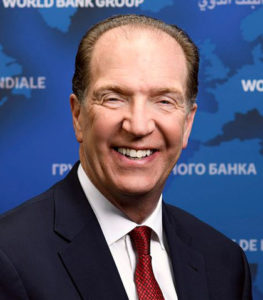Financial crisis looming in the developing world
A growing number of poorer and developing countries are facing an economic disaster as a result of the COVID-19 pandemic, experts say.
Many of these economies are already in the grip of humanitarian crises and have been negatively affected by lockdowns, falling commodity prices, declining remittances and the flight of foreign capital investment.
 According to London School of Economics professors Maitreesh Ghatak and Xavier Jaravel, around $US100 billion has left emerging markets since January, five times more than in the 2008 crash.
According to London School of Economics professors Maitreesh Ghatak and Xavier Jaravel, around $US100 billion has left emerging markets since January, five times more than in the 2008 crash.
They say developing countries will need resources to combat the twin health and economic shocks.
“The nations will need cash to buy medical equipment and to aid distressed firms and destitute households. But already face debt crises, ruling out further borrowing,” the economists say.
They say even fast-growing economies are in trouble: Ghana and Ethiopia, which averaging 5 to 6 percent growth in the past decade, now face insolvency.
“Middle-income countries like Turkey and South Africa are also on the brink,” Profs Ghatak and Jaraval say.
They say some poorer countries, many already in humanitarian crisis, will soon have to choose between servicing their lenders or helping their most vulnerable citizens.
Their warning comes as the World Bank and the International Monetary Fund are warning that the tools to deal with a looming debt crisis aren’t up to the job.
Low-income nations were due to pay at least $40 billion to banks and bondholders this year, and plans to pause some of those interest payments – let alone cancel any of the principal – are patchy and “too shallow”, according to the World Bank.
Meanwhile, the UN’s flagship $US10.19 billion appeal to raise emergency funds to help the poorest countries respond to the coronavirus pandemic and its humanitarian fallout has stalled at about $US2.8 billion.
Some economists say the impacts of COVID-19 and the global recession could push up to 15o million people into extreme poverty.
Suggestion to ameliorate the crisis include having the International Monetary Fund (IMF) step in and provide liquidity by expanding its ‘special drawing rights’ fourfold.
But the US, which has veto powers over such a move, is against the idea, which would give all countries more liquidity. It prefers to have countries seek help individually from the IMF or US Federal Reserve. That means the US can pick and choose who get support and who doesn’t.
Also, importantly, as Profs Ghatak and Jaraval point out, the IMF hands out loans, not grants. But in this crisis, the developing world needs direct and immediate cash transfers, rather than ways to merely spread out costs and deabt over time.
Meanwhile, World Bank chief David Malpass said this week that the impact of COVID-19 recession could be “a threat to the maintenance of social order… and even to the defence of democracy”.
Mr Malpass said “enormous budget deficits and debt payments” are “overwhelming” some countries.
The IMF, meanwhile, has warned that the world is at a “critical juncture” to prevent a pandemic-related “debt quagmire”, which could hit people in low-income countries the hardest.
The whole “architecture” of debt owed by countries needs an overhaul, it said.
The World Bank has called for debt write-offs for countries with unsustainable debt as the world faces what Mr Malpass called an “inequality pandemic”.
And the economic crisis for these countries could stretch far into the future.
When a nation cannot pay back even some of its loans, a sovereign debt default is triggered. This means it becomes harder to borrow or attract investment into the future.
Credit ratings agencies say Argentina, Ecuador, Lebanon, and Suriname have defaulted already.
Another possible solution is the Debt Service Suspension Initiative (DSSI), which allows countries to pause debt repayments to creditors willing to participate.
The World Bank is currently examining this option but NGOs say the DSSI package doesn’t go far enough or include enough countries, and warns of a debt repayment crunch from 2022 onwards.












